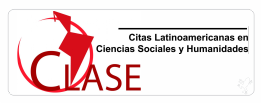Opiniones de los administradores de la educación sobre el impacto de sus características de liderazgo en el compromiso humanitario y organizativo de los maestros
Palabras clave:
Administradores de la educación, características de liderazgo, acoso moral, compromiso organizacional.Resumen
Esta investigación se ha llevado a cabo con el modelo de seguimiento de calidad y en el proceso de modelado para identificar los estilos de formación de los responsables de la educación y el compromiso de organización y movilización de los maestros. De las técnicas de investigación cualitativas, se utilizó la entrevista semi sembrada y de análisis de datos para la colección de datos. La fecha estimada de datos que los estilos de aprendizaje de los miembros de la escuela tienen un impacto mayor en el compromiso de organización y los problemas de movilidad de los profesores. Los resultados de la investigación tienen un mayor grado ya que se considera que tienen un impacto importante en la identificación de factores negativos en el proceso de organización de los movimientos y el desarrollo del organisation. Con respecto a los resultados de la investigación, los defectos en el conocimiento sobre el liderazgo y el estilo de los estilos, además del bajo organisation de la necesidad se debe en un gran aprecio. Las recomendaciones que se recomiendan a continuación de los resultados se consideran beneficiosos para la prevención de los comportamientos negativos negativos entre los administradores de la escuela y los maestros y las circunstancias adversas asociadas.
Descargas
Citas
Allen, N.J., Meyer, J.P. (1991). A Three-Component Conceptualization of Organizational Commitment. Human Resource Management Review. 1(1), pp. 61-89.
Araújo, M.S., Elmes Mclntyre, S., Mendonca Mclntyre, T. (2010). Bullying at Workplace: Prevalence, ?ndividual and Organizational Consequences. 6.th International Conference on Workplace Bullying-Sharing Our Knowledge, Abstracts, Institut Sante et Societe, Montreal-Canada, 4-6 June, pp. 202-205.
Bartels, L.K., Harrick, E., Martell, K., Strickland, D. (1998). The relationship between ethical climate and ethical problems within human resource management. Journal of Business Ethics, 17(7), pp. 799–804.
Blasé, J. (2002). The dark side of leadership: Teacher perspectives of principal mistreatment. Educational Administration Quarterly, 38(5), pp. 671–727.
Boyle, G.J., Borg, M.G., Falzon, J.M., Baglioni, A.J. (1995). A structural model of the dimensions of teacher stress. British Journal of Educational Psychology, 65(2), pp. 49–67.
Bulutlar, F., Öz, E.Ü. (2009). The effects of ethical climates on bullying behavior in the workplace. Journal of Business Ethics, 86, pp. 273–295.
Byington, J.R., Johnston, J.G. (1991). Influences on Turnover of Internal Auditors, Internal Auditing, 7(2), pp. 3-10.
Capel, S.A. (1991). A longitudinal study of burnout in teachers. British Journal of Educational Psychology, 61(1), pp. 36–45.
Celep, C. (2000). Organizational Devotion and Teachers in Education. Ankara: Memory.
Celep, C. (2004). Transformational Leadership. Ankara: Sudden Publishing.
Cemalo?lu, N. (2007). Investigation of School Leaders' Leadership Styles in Terms of Various Variables. Turkish Journal of Educational Sciences, 5(1), pp. 73–112.
Cemalo?lu, N. (2007). The Inevitable Problem of Organizations. Bilig, 42, pp. 111–126.
Cemalo?lu, N., Ertürk, A. (2007). Investigation of Mobbing Actions Exposed by Teachers in Terms of Gender. Turkish Journal of Educational Sciences, 5(2), pp. 345-362.
Cemalo?lu, N., Ertürk A. (2008). Direction of Intimidation Exposed by Teachers and School Principals. Bilig Magazine, 46, pp. 67-86.
Chow, I.H., Lo, W.C., Sha, Z., Hong, J. (2006). The impact of Developmental Experience, Empowerment, and Organizational Support on Catering Service Staff Performance. International Journal of Hospitality Management, 25, pp. 478-495.
Cullen, J.B., Parboteeah, K.P., Victor, B. (2003). The effects of ethical climates on organizational commitment: A two-study analysis. Journal of Business Ethics, 46, pp. 127–141.
Davenport, N., Schwart, R.D., Eliot, G.P. (2003). Mobbing: Emotional Abuse ?n The American Workplace. (Translated by Osman Cem Önertoy). Istanbul: System.
Dick, R., Wagner, U. (2001). Stres and Strain ?n Teaching: A Structural Equation Approach. British Journal of Educational Psychology, 71(4), pp. 243- 259.
Dupuy, P. (2010). The Relationship Among Distributive and Procedural Justice and Correctional Life Satisfaction, Burnout, And Turnover Intent: An Exploratory Study. Journal of Criminal Justice, 38(1), pp. 7-16.
Einarsen, S. (1999). The nature and causes of bullying at work. International Journal of Manpower, 20(1-2), pp. 57-69.
Elkins, A. (1980). Management Structures, Functions and Practices. Massachusetts: Addison-Wesley Publishing.
Ertürk, A. (2005). '' Mobbing Actions Exposed by Teachers and School Administrators in the School Environment (Example of Ankara Primary Schools) ''. (Published master thesis). Gazi University Institute of Educational Sciences, Ankara.
Goffee, R., Jones, G. (2000). Corporate Culture. Istanbul: Kapital Medya A.?.
Gündüz, H.B., Y?lmaz, Ö. (2008). Opinions of Teachers and Administrators Regarding Mobbing Behaviors in Secondary Education Institutions (Example of Düzce province). Journal of National Education, 37(179), pp. 269- 282.
Hoel, H., Faragher, B., Cooper, C. (2004). Bullying Is Detrimental to Health, But All Bullying Behaviours Are Not Necessarily Equally Damaging. British Journal of Guidance and Councelling, 32(3), pp. 367-387.
Hoosen, I.A., Callaghan, R. (2004). A survey of workplace bullying of psychiatric trainees in the West Midlands. Psychiatric Bulletin, 28, pp. 225–227.
Hubert, A., Veldhoven, M. (2001). Risk sectors for undesirable behavior and mobbing. European Journal of Work and Organizational Psychology, 10(4), pp. 415–424.
Karasar, N. (1994, 2010). Scientific research method. Ankara: 3A Research Education Consulting Limited.
K?l?nç, A.Ç. (2010). The Relationship Between School Administrators' Level of Showing Ethical Leadership Behaviors and Organizational Trust and Intimidation Experienced by Teachers. (Unpublished Master's Thesis). Gazi University / Institute of Educational Sciences, Ankara.
Koç, H., Yavuz, E. (2007). A Research on the Effects of Demographic Factors on the Organizational Commitment of Teachers Lambert, E.G., Hogan, N.L., Jiang, S., Elechi, O., Benjamin, B., Morris, A., Laux, J. M., Journal of Public-Labor Law and Economics, 9(4), pp. 23-25.
Legard, R., Keegan, J., Ward, K. (2003). 'In-depth interviews', in Qualitative research practice. A guide for social research students and researchers, Sage, London, pp. 138-169.
Leong, C.S., Furnham, A., Coope,r, C.L. (1996). The Moderating Effect of Organizational Commitment On the Occupational Stress Outcome Relationship. Human Relations, 49, 1345-1361.
Lewis, D. (2004). Bullying at work: The impact of shame among university and college lecturers. British Journal of Guidance and Counseling, 32(3), pp. 281–299.
Leymann, H. (1990). Mobbing and psychological terror at workplaces. Violence and Victims, 5, pp. 119–126.
Luthans, F., Back, D., Taylor, L. (1992). Organizational commitment: Analysis of Antecedents. Human Relations. 40 (4), pp. 125-127.
Marshall, C., Rossman, G.B. (1999). Designing qualitative research, 3, pp. 21-54.
Matthiesen, S.B. (2006). Bullying at work, antecedents and outcomes. (Unpublished doctoral dissertation). University of Bergen, Bergen, Norway.
Mulki, J.P., Jaramillo, J.F., Locander, W.B. (2008). Effect of ethical climate on turnover intention: Linking attitudinal- and stress theory. Journal of Business Ethics, 78(4), pp. 559–574.
Mulki, J.P., Jaramillo, J.F., Locander, W.B. (2009). Critical role of leadership on ethical climate and salesperson behaviors. Journal of Business Ethics, 86(2), pp. 125–141.
O’Driscoll, M., Beehr, T. (1994). Supervisor behaviors, role stressors and uncertainty as predictors of personal outcomes for subordinates. Journal of Organizational Behavior, 15(2), pp. 141–155.
Peterson, D. (2002). Deviant workplace behavior and the organization’s ethical climate. Journal of Business and Psychology, 17(1), pp. 47–61.
Sa?lam Çiçek, A. (2008). Teachers' Views on Mobbing (Psychological Violence) in Primary Schools. Journal of Educational Research, 32, pp. 133-142.
Salin, D. (2003). Ways of Explaining Workplace Bullying: A Review of Enabling, Motivating and Precipitating Structures and Processes in The Work Environment. Human Relations, 56(10), pp. 1213–1232.
T?naz, P. (2006). Psychological harassment in the workplace. Work & Society, 2006/4.
Turan, S. (2002). Organizational climate and organizational commitment: A study of human interactions in Turkish public schools. Educational Planning, 14(2), pp. 20–30.
Vandekerckhove, W., Commers, M.S.R. (2003). Downward Workplace Mobbing: A Sign of the Times? Journal of Business Ethics, 45, pp. 41-50.
Vartia, M. (1996). The sources of bullying-psychological work environment and organizational climate. European Journal of Work and Organizational Psychology, 5(2), pp. 203–214.
Weeks, W.A., Nantel, J. (2004). Corporate codes of ethics and sales force behavior: A case study. Journal of Business Ethics, 11(10), pp. 753–760.
Ya?c?. E., Uluöz, T. (2017). “Assessment of the Relation Between the Leadership Styles of School Administrators and Mobbing Experience Levels of Teachers and Their Organisational Commitment”, Eurasia Journal of Mathematics, Science and Technology Education.
Y?ld?r?m, A., ?im?ek, H. (2011). Qualitative research methods in the social sciences. 8. Edition. Ankara: Distinguished Publishing.


























